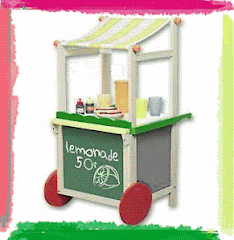I sat in a parents' meeting at school this past week, and heard our district principal say that if school looks like it did when I was in school, then something needs to change. As vexing as this can be, my kids all seem to be learning quite readily, and at the end of the day, it's highly likely they're learning more real-world applications of more current information.
Case in point: Last week, I told Mia that Amerigo Vespucci discovered America--a "fact" I clearly remember learning in middle school. She told me that I was wrong--that the current thinking is that we don't know who discovered America.
With two kids in middle school, I've seen plenty of superficial differences between then and now. Desks are often table groups. Classrooms often don't have doors. Handwriting is a low priority. Kids call parents for any reason from phones in the classrooms. My mom, visiting from out of town, stopped by our elementary school with me last year and was startled by the number of unsupervised kids walking the hallways. "They don't sit all day at desks anymore," I told her.
Interestingly, I just recently realized one of the more profound differences: My kids don't use textbooks. I've seen math workbooks come home, but definitely no traditional textbooks thick with columns of instruction. In a different parent meeting, I asked teachers how kids study without textbooks, and I was told they use handouts, class notes, websites, blogs, peer reviews, and discussion. Textbooks are just too expensive and too quick to go obsolete, they explained. While this awareness surprised me, the more I think about it, the more interesting it all seems for students.
That's all I really wanted to say today. School is different. Textbooks are history. And this, which I found in an article on the internet:
"Smart grownups don't generally read school textbooks. Instead, they read newspapers, magazines, and other non-fiction materials, and often talk about them with their friends, coworkers, and families."


No comments:
Post a Comment